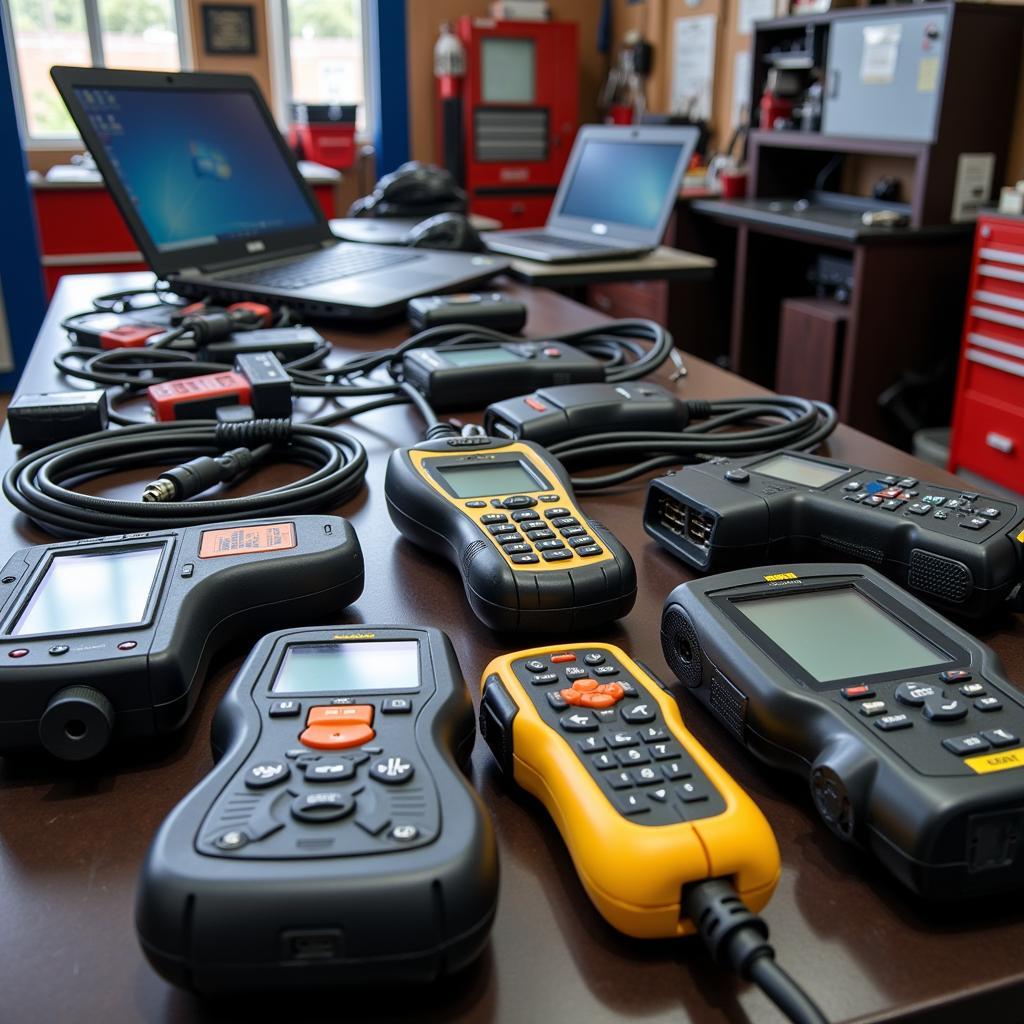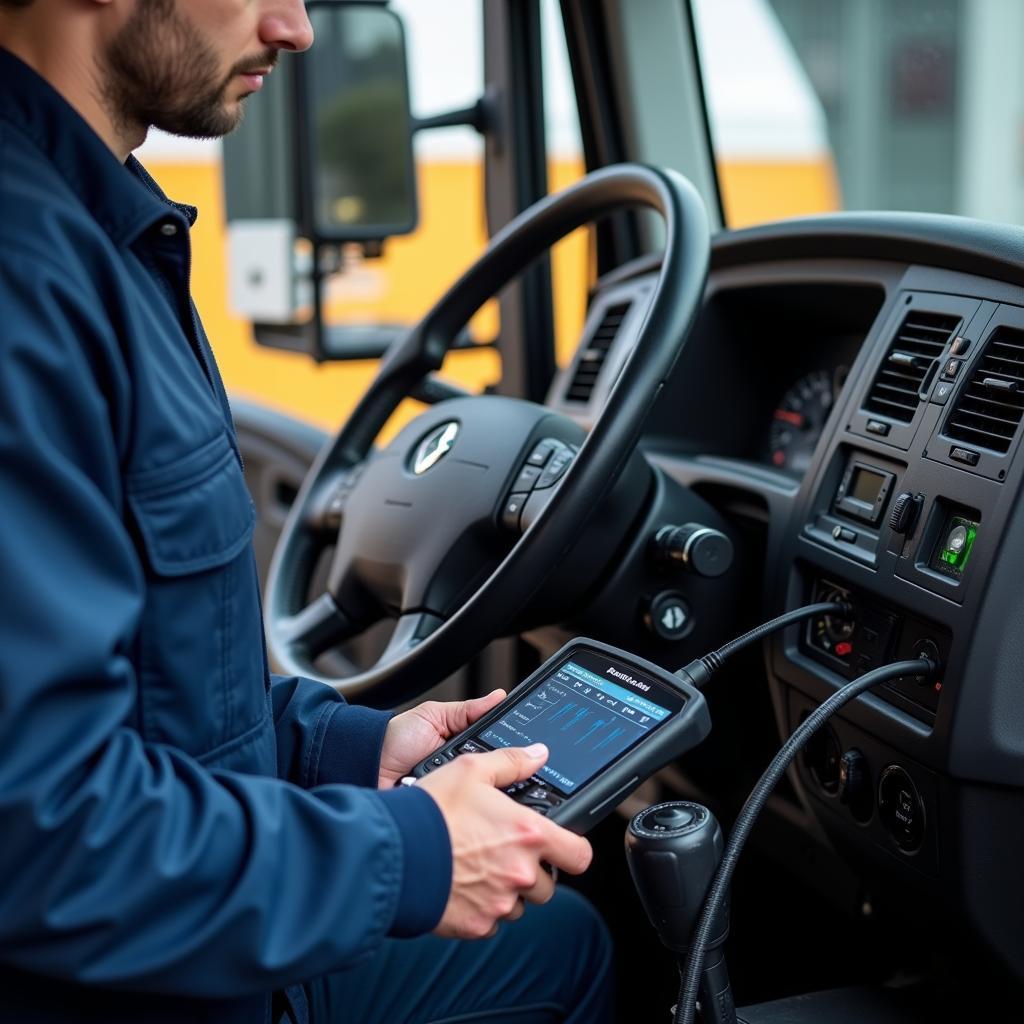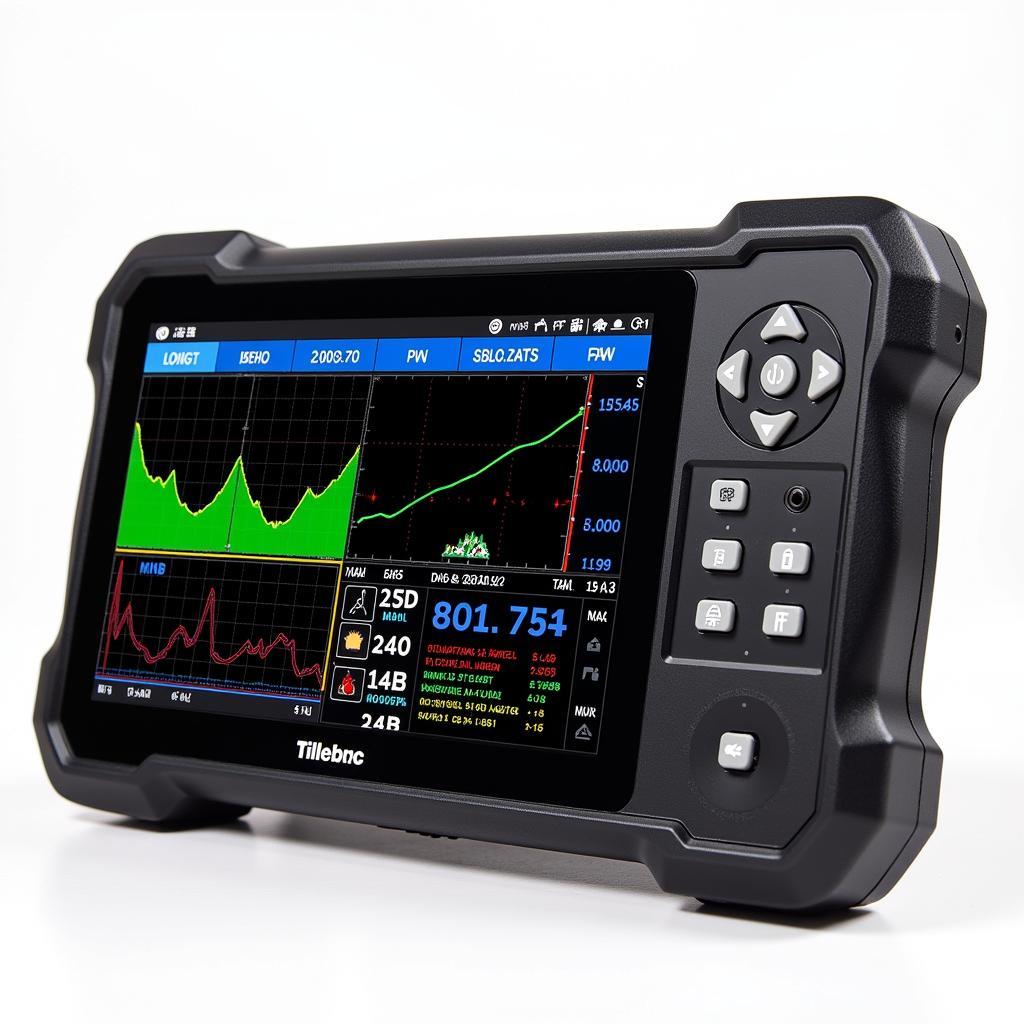The automotive world is rapidly evolving, with intricate electronics and complex systems becoming standard in even the most basic vehicles. This evolution necessitates a new era of automotive repair, one driven by technology and data. This is where Car Diagnostic Tool Training comes into play. No longer a luxury, it’s now a necessity for mechanics and car enthusiasts alike.
Understanding the Power of Car Diagnostic Tools
Gone are the days of relying solely on mechanical intuition and experience to diagnose car problems. Today’s vehicles are data-driven machines, constantly communicating through a network of sensors and electronic control units (ECUs). These ECUs generate a wealth of information about the vehicle’s health, performance, and potential issues. This is where car diagnostic tools step in, acting as the bridge between these complex systems and the human eye.
These tools, ranging from handheld scanners to sophisticated software suites, provide a window into the inner workings of a vehicle. They can:
- Read and interpret Diagnostic Trouble Codes (DTCs): These codes, often displayed as a combination of letters and numbers, pinpoint specific areas within the vehicle’s systems that require attention.
- Display live data streams: This feature allows mechanics to monitor various parameters like engine RPM, coolant temperature, and oxygen sensor readings in real-time, providing valuable insights into the vehicle’s operational status.
- Perform actuator tests: This functionality helps verify the proper operation of various components like solenoids, actuators, and relays, ensuring they respond correctly to commands from the ECU.
Why Car Diagnostic Tool Training is Essential
The sheer complexity of modern vehicles and the constant evolution of automotive technology make car diagnostic tool training indispensable for anyone involved in auto repair. Here’s why:
- Efficiency and Accuracy: Diagnostic tools drastically reduce diagnostic time by pinpointing problems quickly and accurately, eliminating the need for time-consuming and often inaccurate guesswork.
- Cost Savings for Customers: Faster diagnosis translates to lower labor costs for customers, making repair services more affordable.
- Staying Ahead of the Curve: The automotive industry is constantly evolving. Car diagnostic tool training keeps mechanics abreast of the latest technologies and equips them to handle the vehicles of today and tomorrow.
- Enhanced Safety: By accurately identifying and addressing potential safety concerns, diagnostic tools play a crucial role in ensuring vehicle safety for both mechanics and car owners.
Key Aspects of Car Diagnostic Tool Training
Effective car diagnostic tool training goes beyond simply teaching how to operate the tool; it delves into understanding the intricate workings of the vehicle’s systems. Here are some key aspects covered in comprehensive training programs:
- Fundamentals of Automotive Electronics: A solid understanding of basic electrical principles, circuit diagrams, and electronic components is crucial for interpreting data from diagnostic tools.
- Vehicle Communication Protocols: Modern vehicles use various communication protocols like CAN bus, LIN bus, and FlexRay. Training covers these protocols, enabling mechanics to effectively communicate with the vehicle’s systems.
- Diagnostic Trouble Code (DTC) Analysis: Proper training equips technicians with the knowledge to interpret DTCs accurately, understand their severity, and diagnose the root cause of the problem, not just the symptom.
- Use of Specialized Software: Many advanced diagnostic tools come with specialized software for tasks like module programming, key coding, and advanced diagnostics. Training ensures mechanics can utilize these features to their full potential.
- Hands-On Experience: Practical experience is invaluable. Training often involves working on actual vehicles, allowing technicians to apply their knowledge in real-world scenarios.
“The most successful mechanics today are those who embrace technology and make continuous learning a part of their career path,” says John Miller, a seasoned automotive engineer with over 20 years of experience. “Car diagnostic tool training is no longer optional; it’s an investment in your future.”
Choosing the Right Car Diagnostic Tool and Training
The market is flooded with a wide array of car diagnostic tools, each with varying capabilities and price points. Selecting the right tool and training program depends on individual needs and budget.
- DIY Enthusiasts: For basic diagnostics and code reading, affordable handheld scanners like some FASD diagnostic tools can be sufficient.
- Independent Mechanics: Investing in a more advanced scan tool with broader vehicle coverage, live data capabilities, and some programming functions is advisable. Consider exploring options for the best diagnostic car tool within your budget.
- Specialized Repair Shops: For shops specializing in particular makes or systems, OEM diagnostic tools partition or tools with extensive coverage of those systems are recommended.
 Car Diagnostic Tools on Workbench
Car Diagnostic Tools on Workbench
When selecting training:
- Reputation and Accreditation: Opt for reputable training institutions or online courses with industry recognition.
- Comprehensive Curriculum: Ensure the curriculum covers both the theoretical and practical aspects of car diagnostic tools and aligns with your skill level.
- Instructor Expertise: Look for trainers with extensive industry experience who can provide practical insights and real-world knowledge.
- Ongoing Support: Choose training programs that offer continued support and resources even after the course completion.
Conclusion
Car diagnostic tool training is no longer a luxury but a necessity in the ever-evolving automotive landscape. It empowers mechanics and car enthusiasts with the knowledge and skills to accurately diagnose and repair complex vehicle systems, ensuring efficiency, cost-effectiveness, and safety. By embracing this technological shift and investing in comprehensive training, you equip yourself to thrive in the future of auto repair.
Need expert advice on car diagnostic tools or training? Contact ScanToolUS at +1 (641) 206-8880 or visit our office at 1615 S Laramie Ave, Cicero, IL 60804, USA. We’re here to help you navigate the complexities of modern car repair.



